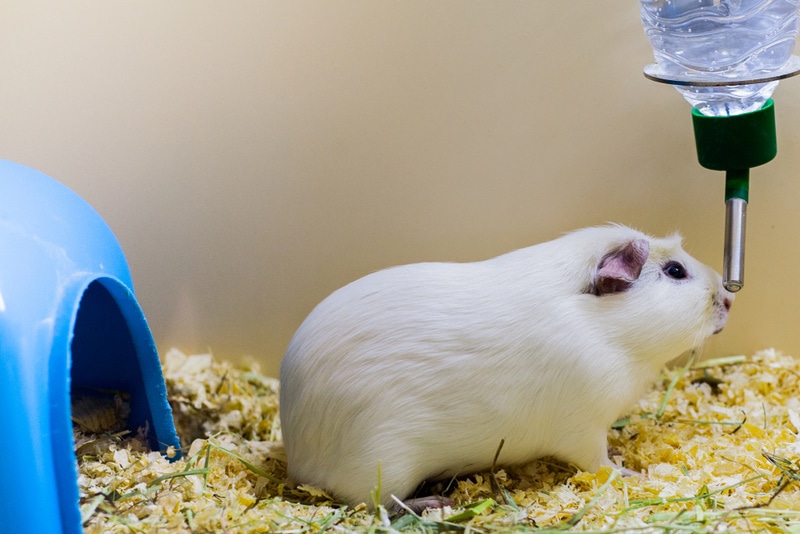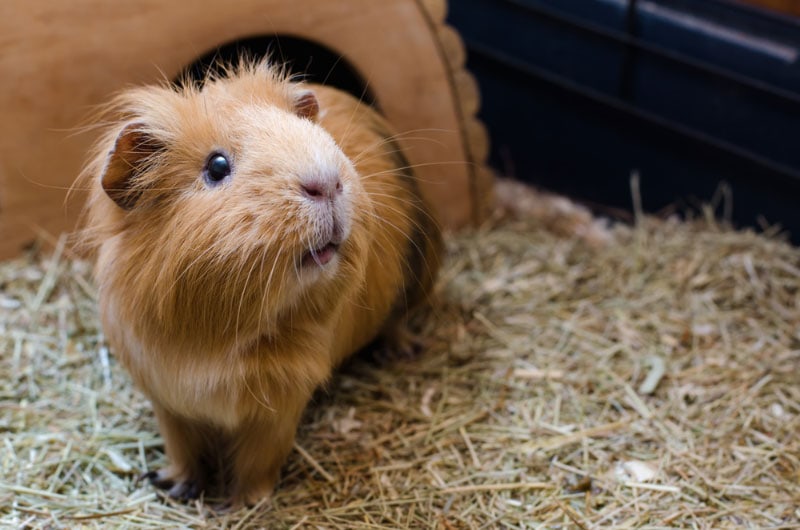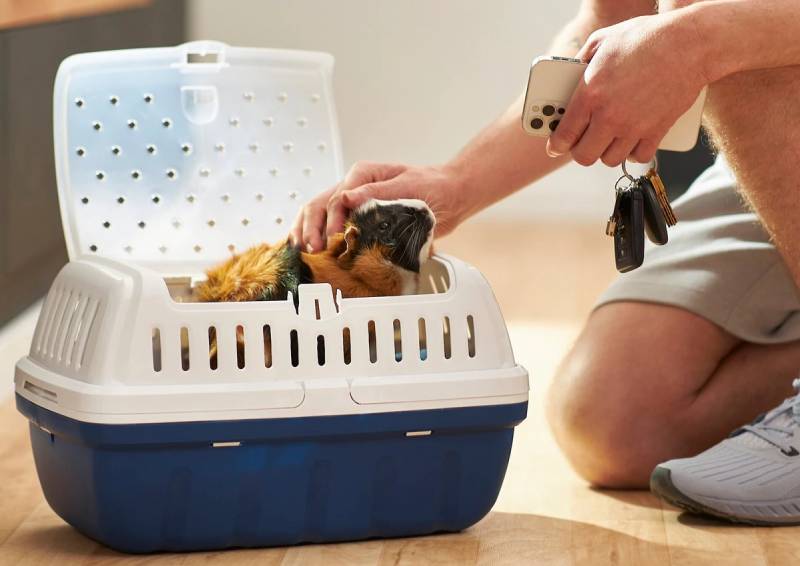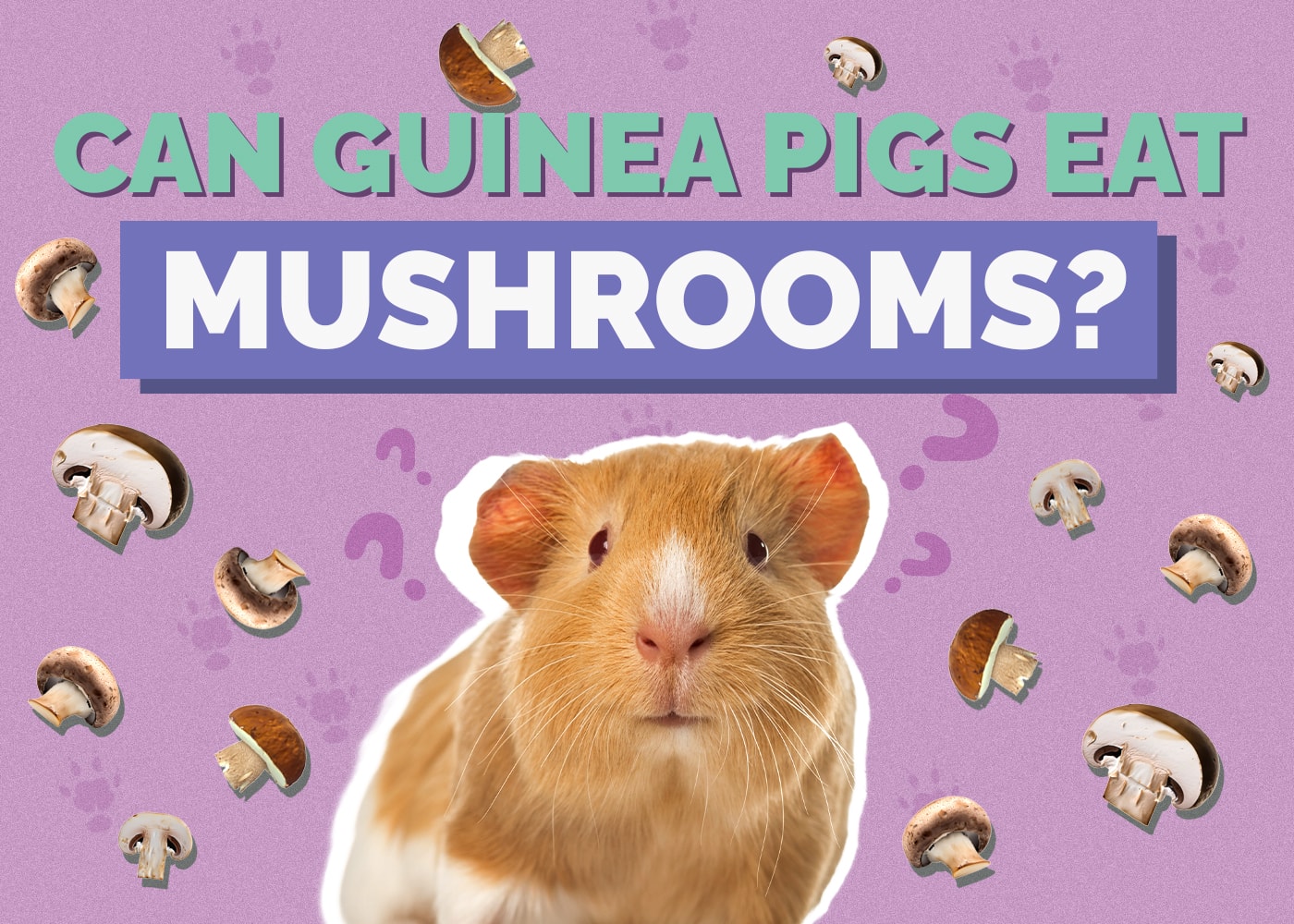Can Guinea Pigs Drink Tap Water? Vet Approved Safety & Care Guide

Updated on

Click to Skip Ahead
All pet owners want to ensure they give their furry friends the best quality food. But what about water? Do guinea pigs need a special type of water? If so, what kind of water should they be drinking?
Thankfully, you do not need to go to the store and buy the most expensive brand of mineral water to give to them. So, if you are drinking tap water, so can your guinea pigs. Tap water is perfectly safe for guinea pigs (as long as it is safe for you to drink, of course!).
Is Tap Water Safe for Guinea Pigs?
The short answer to this question is that any water that you can drink should also be safe for your guinea pig. If you live in the USA, the majority of people use tap water for drinking and cooking. If there are situations where drinking tap water is not recommended, cities and towns will get alerts.
But the bottom line is that tap water is perfectly safe for guinea pigs.

What Kind of Liquids Should Be Avoided?
Guinea pigs do not need special liquids to be healthy. This means water will be more than enough. Never give them sports drinks, sodas, milk, or juices. While we can enjoy these drinks from time to time, they are not good for your guinea pig (or any other pet, for that matter!). These drinks are high in sugar, which could cause obesity for your little cavie. Stick with water.
How Much Water Should a Guinea Pig Get?
Each adult guinea pig needs a minimum of 80 ml to 100 ml of water a day, which is about a little over 1/3 of a cup. If you have more than one guinea pig, you will need to provide more water for them. Pregnant or lactating guinea pigs need more water daily. A water bottle is ideal to keep the water clean. If you give them water in a dish, check the dish at least twice a day. Bedding, food, or feces could get into the bowl, contaminating the water. Make sure water does not spill on the bedding. Damp bedding could affect your piggie’s health.

The 3 Tips for Caring for Your Guinea
It’s great that you’re thinking about what you can give your guinea pig to drink, but that’s not all that goes into caring for them. With that in mind, we’ve highlighted a few more basic things you should know when caring for a guinea pig.
1. Cage Size
If you think any guinea pig cage you find at the store is big enough for them, you’re sadly mistaken. In fact, most guinea pig cages are too small. A single guinea pig needs a cage that’s at least 50” by 24”, and for each extra guinea pig you add, you need at least 20% more space.
You also need to find a location where it’s well-ventilated; otherwise, you increase the likelihood of your guinea pig developing respiratory illnesses.
2. Cage Cleaning
At the very least, you need to spot-clean your guinea pig’s cage daily. Not only do you need to spot-clean the dirty areas daily, but every 3 to 4 days, you need to change out their bedding. When selecting bedding, never use cedar or pine shavings, as these can cause serious respiratory problems for your guinea pig.

3. Diet
To properly care for your guinea pig, you need to feed them a high-quality diet, and it all starts with unlimited amounts of fresh grass hay they have constant access to. Hay doesn’t meet all of their nutritional needs, but it’s essential for fibre and healthy teeth wear.
From there, guinea pigs need about half a cup to a full cup of fresh vegetables daily and 1 to 2 tablespoons of guinea pig pellets. You can give them some fruit, but in general offer much more vegetables; kale, broccoli, parsley, red peppers and kiwi are great choices. The fresh produce is essential to provide vitamin C in their diet. Like people, guinea pigs can’t synthesise their own vitamin C, so it needs to be in their diet to avoid health problems.
Final Thoughts
If you can safely drink the water from your tap, so can your guinea pig! Remember to check their water supply once or twice a day to make sure it is clean. Between 80ml to 100 ml of water per guinea pig will usually be adequate, but ideally they will have a large supply of water so they can drink as much as they wish.
Featured Image Credit: zefart, Shutterstock











